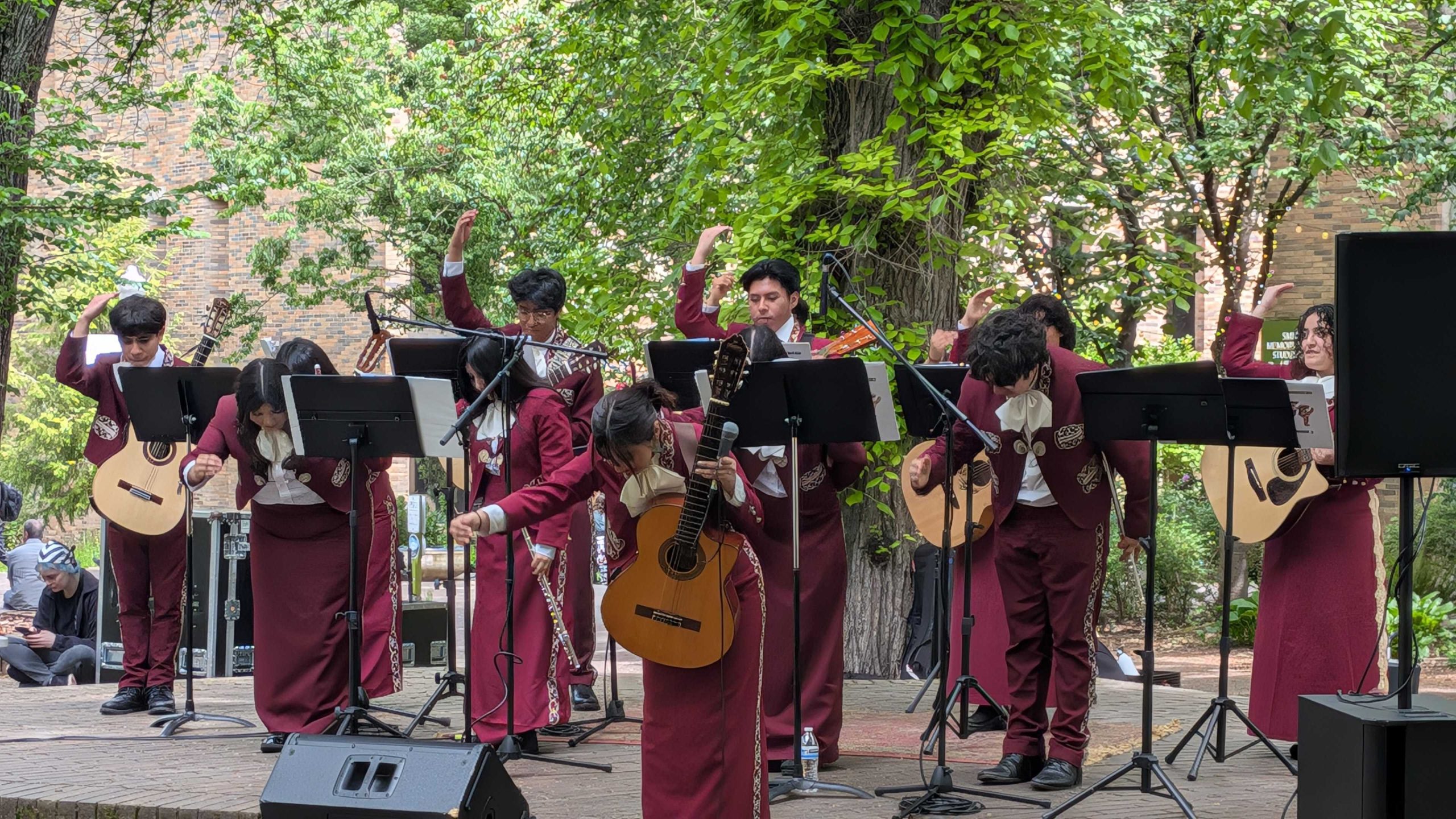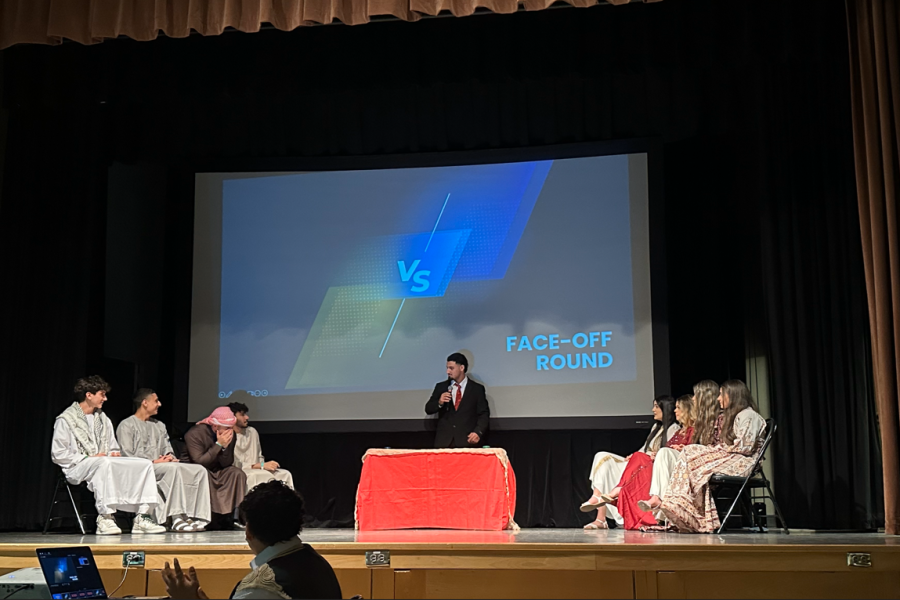After thoroughly crashing out over midterms, what’s more relaxing than fresh fruits and a week of event hopping?
La Casa Latina (La Casa) returns with its annual Si Se Puede week, a lineup of events that took place over the span of the first week of May.
The first event that took place was the 5 de Mayo: Night at the Rec, an event located at the Campus Recreation Center in the Urban Plaza. This event had a mechanical bull open for students to ride and try to keep their balance, a five-versus-five indoor soccer tournament and fruta picada cups, which are chopped up fruits that are often seasoned with chili and lime, as well as other Mexican snacks.
Evelyn Rosas-Atrian is a PSU Student and a part of the student programming team for event planning at La Casa.
“We’re gonna be doing events from different themes every day, from Monday to Friday,” Rosas-Atrian said. “Today, Monday, it’s a Cinco de Mayo event, and we honestly just got lucky that it [took place] on Cinco de Mayo as well. I’m most excited for today, just because I’m excited to see everyone ride the bull, and to see how the soccer tournament turns out.”
On Tuesday, a double feature movie night was hosted in the La Casa Latina, SMSU 228 student center. The films presented were Roma (2018), directed by Mexican Filmmaker Alfonso Cuarón, and Problemista (2023), directed by and starring Salvadoran-American Actor Julio Torres.
Roma follows Cleo—an Indigenous domestic worker in 1970s Mexico—and it highlights her position as a marginalized figure within a wealthy family and her struggles within society.
This film is known for its elegant black and white cinematography and longer takes, as well as its sense of realism.
Problemista follows Alejandro—who is a Salvadoran immigrant in New York City—and he navigates a bureaucratic system to stay in the United States while pursuing his dream of becoming a toy designer.
Problemista—in contrast to Roma—is more comedic, uses a more colorful and surreal visual palette and uses very particular elements to reflect this sense of strangeness of the systems in the United States.
On Wednesday, La Casa collaborated with MEChA De PSU—a Latino based student group that aims to uplift Chicanos through higher education and to implement plans of action concerning the Chicano community—and the MultiCultural Center (MCC), who helped host a Mariachi in the park blocks.
A Mariachi is a traditional Mexican musical ensemble that consists of a group of musicians who sing and play a variety of different instruments that can include trumpets, violins and guitars.
Favio Estrada-Sanchez is a PSU Alumnus and La Casa’s Main Coordinator. Estrada-Sanchez will be a master’s student in the fall at the PSU School of Social Work.
“Mariachi in the park has always been a really great event, people come out for lunch—faculty is out, staff is out, students are out, we get a lot of people coming to the park blocks and we really have a great time,” Estrada-Sanchez said. “It’s a really relaxing time and it’s always been a fun event, especially when the weather is really nice.”
On Thursday, the “Creatures in Color” event took place, where students and community members learned about Alebrijes while creating colorful artwork to express creativity with friends.
Alebrijes are brightly colored fantasy Mexican folk art sculptures that depict hybrid creatures in unique ways.
“They’re originally made out of wood, and they are painted with a lot of different patterns, but in this case to make it easier for students, we decided to make it with paper, aluminum foil, and clay,” Rosas-Atrian explained. “When people think about Latinx, people think about the same traditions, but there’s so many that go with different countries that are considered Latinos like Elsavedor, and even Brazil. They are considered Latin, so it’s great to be in an area where all of that is celebrated.”
Briana Quintero is the Secretary for Las Mujeres—a Chicana and Latina women’s empowerment organization. She shared a bit about the history of the culture surrounding Alebrijes.
“Alebrijes are very popular within Hispanic cultures, especially surrounding the Day of the Dead,” Quintero explained. “It’s supposed to serve as a spirit guide that helps people cross over after they pass away, and so the animals themselves are just very big within our culture.”
To end Si Se Puede week, La Casa collaborated with MEChA and finished with an open mic night.
This event was advertised as a way to celebrate the vibrant voices of the Latinx community. Poetry, stand-up comedy, music and storytelling all created an exciting lineup of events.
“La Casa at PSU is home, a home away from home,” Estrada-Sanchez said. “If we want to acknowledge the barriers that come with being in higher education, it’s already difficult to be in college—and a lot more difficult for our community historically. Access hasn’t always been there, and that’s why our space is here. To promote the community here on campus and to show them that there are people who care about them and that they can feel a sense of belonging when they are here. The goal of La Casa is to be a home away from home.”






